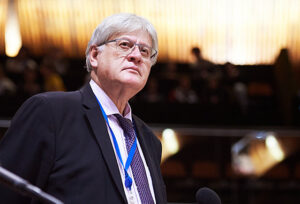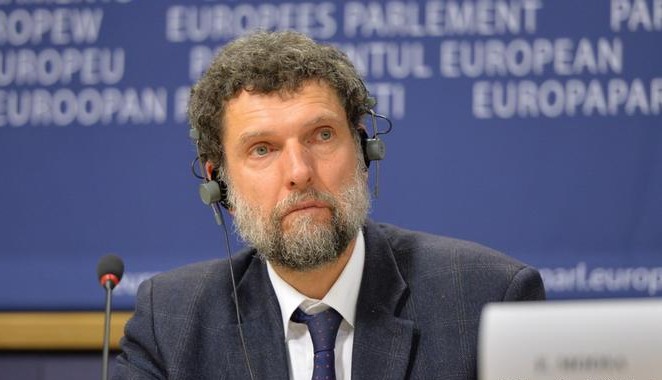Stefan Schennach, one of the co-rapporteurs of the Parliamentary Assembly of the Council of Europe (PACE) for the monitoring of Turkey’s obligations and commitments, will meet with jailed businessman and philanthropist Osman Kavala, the ANKA news agency reported on Wednesday.
Kavala, 66, who has been in prison since November 2017, faced charges that have ranged from espionage and financing anti-government protests in 2013 to taking part in a failed coup against Turkish President Recep Tayyip Erdoğan in 2016.
He was arrested in 2017 and sentenced to life in prison in 2022 for allegedly trying to topple Erdoğan’s government with the Gezi Park protests, which erupted in the summer of 2013 in İstanbul against government plans to destroy a park in central İstanbul.

Schennach is scheduled to meet with Kavala at Marmara Prison in İstanbul’s Silivri district on Thursday as part of his fact-finding visit to Turkey from June 11-14. The Turkey co-rapporteur will also meet with Kavala’s family.
Schennach started his visit in Ankara on Tuesday, meeting with representatives from civil society organizations, the Turkish delegation to PACE and Derya Yanık, Turkey’s former family minister who now chairs the parliamentary Human Rights Committee. The co-rapporteur then met with officials from the ruling Justice and Development Party (AKP) and opposition parties.
He was expected to visit representatives from the Ministry of Justice and Ministry of Foreign Affairs as well as judges at the Constitutional Court and the Supreme Court of Appeals on Wednesday.
Schennach’s visit is aimed at mainly focusing on the latest political and judicial developments in the country, with a focus on implementation of the judgments of the European Court of Human Rights (ECtHR) with respect to Kavala, who remains behind bars despite ECtHR decisions in his favor.
Meanwhile, Dr. Günter Schirmer, head of the Department of Legal Affairs and Human Rights at PACE, argued during an event in Berlin earlier this week that countries such as Turkey that do not abide by ECtHR judgments need to be given a harsher response.
Human rights lawyers and experts responded to questions by the German Bundestag’s Committee on Human Rights and Humanitarian Aid at an event held on the occasion of the 70th anniversary of the European Convention on Human Rights and the adoption of the Universal Declaration of Human Rights 75 years ago.
“Ministers could and should, in my opinion, respond more strictly than before to non-implementation of judgments, especially if a state openly refuses to implement a judgment, as Turkey did in the case of Kavala,” Schirmer said.
A judgment in Kavala’s case in December 2019 by the ECtHR found his detention to be arbitrary, politically motivated and in pursuance of an “ulterior motive,” that of silencing him as a human rights defender.
The non-implementation of the 2019 ruling prompted the CoE Committee of Ministers to launch an infringement procedure against Turkey in February 2022. Possible sanctions include European countries initiating investigations into people involved in Kavala’s imprisonment and Turkey losing its voting rights at PACE.
In March the Committee of Ministers declared Turkey in “serious breach” of the European Convention on Human Rights and the principles of the rule of law due to Kavala’s continued detention. The committee reiterated its deep concern and the need for Turkey to take all necessary steps to ensure the immediate release of Kavala and others detained under similar circumstances.

